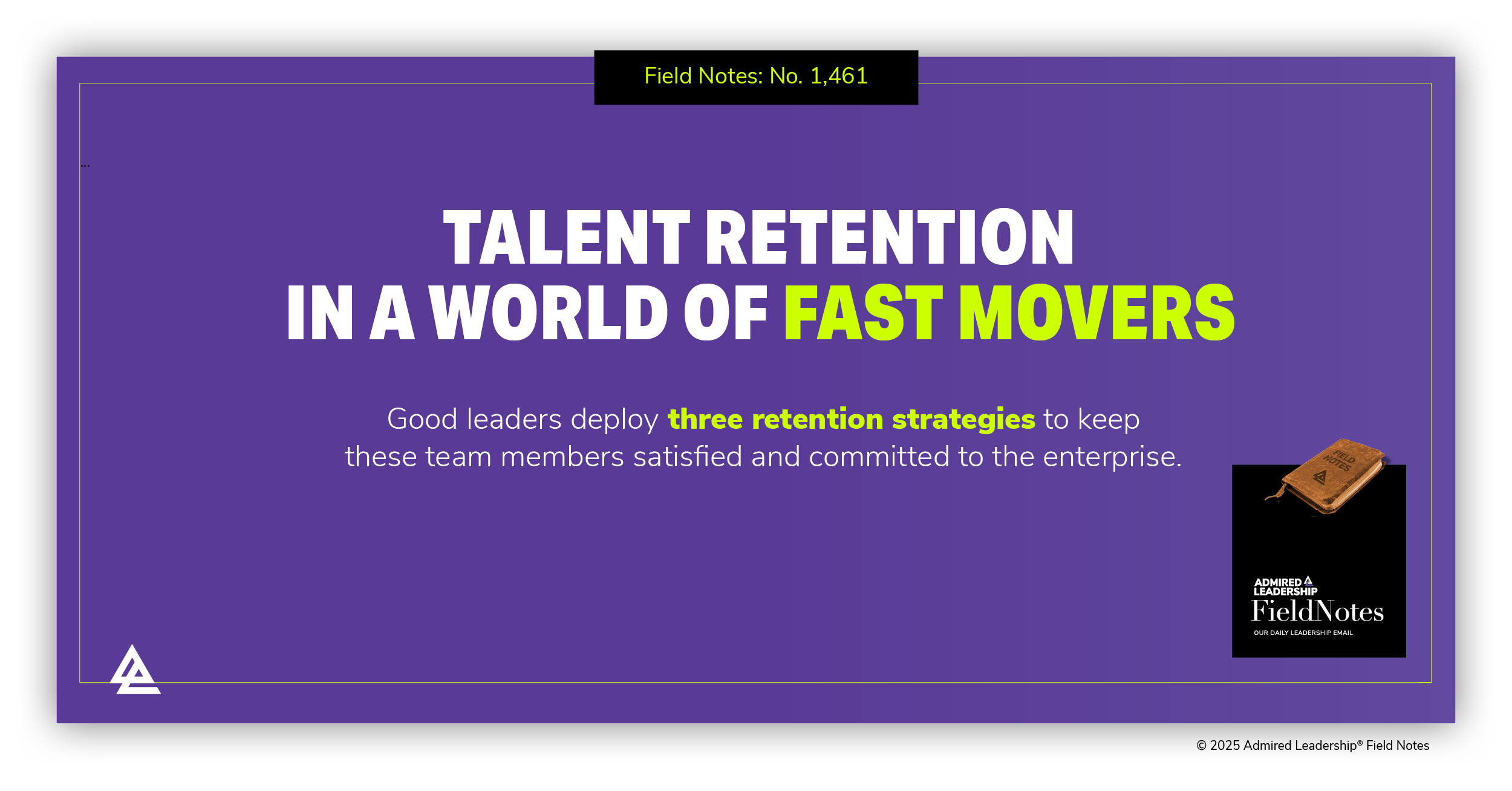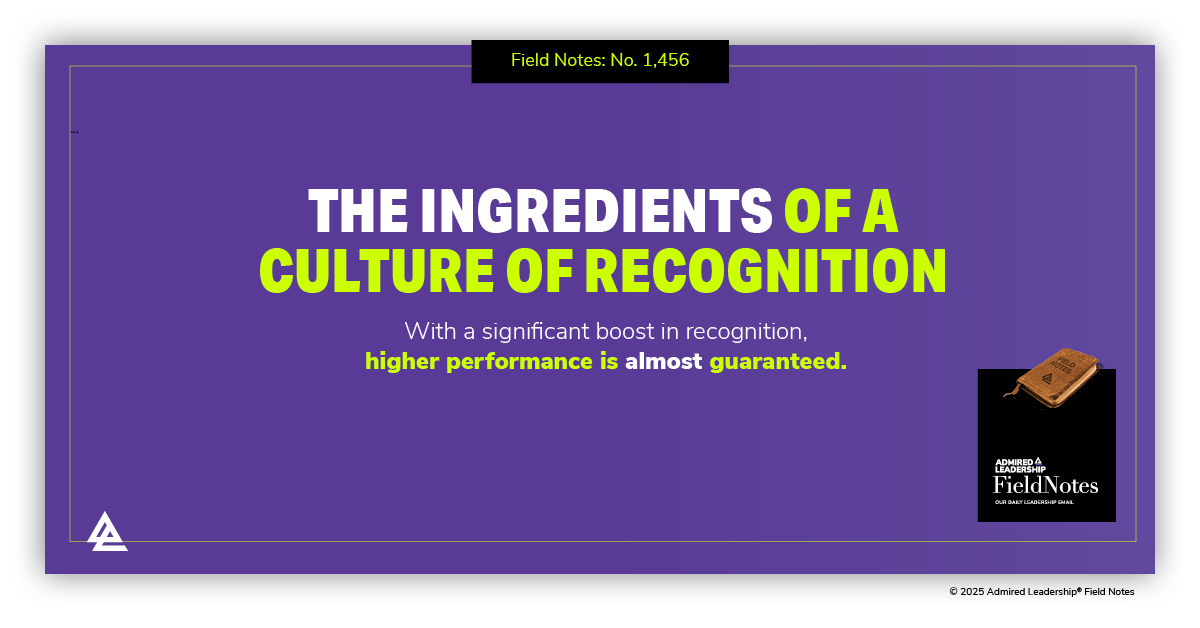Field notes
Field Notes
Our daily Field Notes email is just the kind of jumpstart you need. A fast read. Maybe less than a minute. Because sometimes it just takes one insight to change the trajectory of the day.
Search Field Notes
Leaders Who Can’t One Day See Themselves Working for Any of Their Team Members. Leadership on a team and the talent a leader attracts go hand-in-hand. Highly talented team members seek to work under the guidance of an experienced, confident, and strategic leader who puts the team above their own self-interests.
Leaders and team members no longer stay in the same seats for very long. They change jobs or roles on average every four years or so. For teams that depend on stability, that’s a lot of movement.
When most of those changes are a function of promotion or increased responsibility, organizations thrive. But when leaders and team members leave the enterprise for other pastures, high performance is difficult to achieve and sustain.
Performers of every kind know they are valued when those they perform for refer them and their work to others. The highest endorsement any performer can receive is to have an audience share the competence they’ve witnessed firsthand with those who trust them. Many businesses and enterprises rely on referrals to grow and expand. For those organizations, generating more referrals can position them for even greater success.
Setting personal long-term goals and pursuing a personal mission are worlds apart. Whereas goals are specific, measurable, and outcome-focused, a mission defines the core purpose that remains unchanging and always present. Think of a mission as the reason for existence and goals as targets to achieve.
A workplace environment where leaders and peers commonly celebrate and acknowledge team member achievements and contributions can best be described as a “culture of recognition.”
Such a culture emphasizes high performance and values individual and team success, which thereby boosts morale, motivation, and engagement.
A workplace environment where leaders and peers commonly celebrate and acknowledge team member achievements and contributions can best be described as a “culture of recognition.”
Such a culture emphasizes high performance and values individual and team success, which thereby boosts morale, motivation, and engagement.






